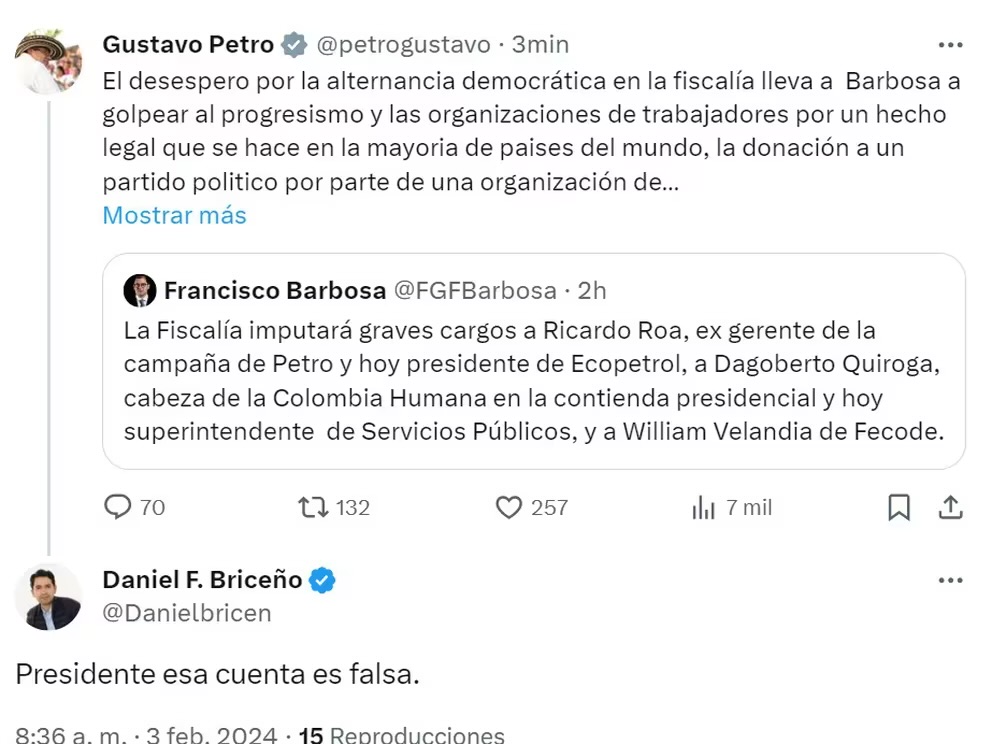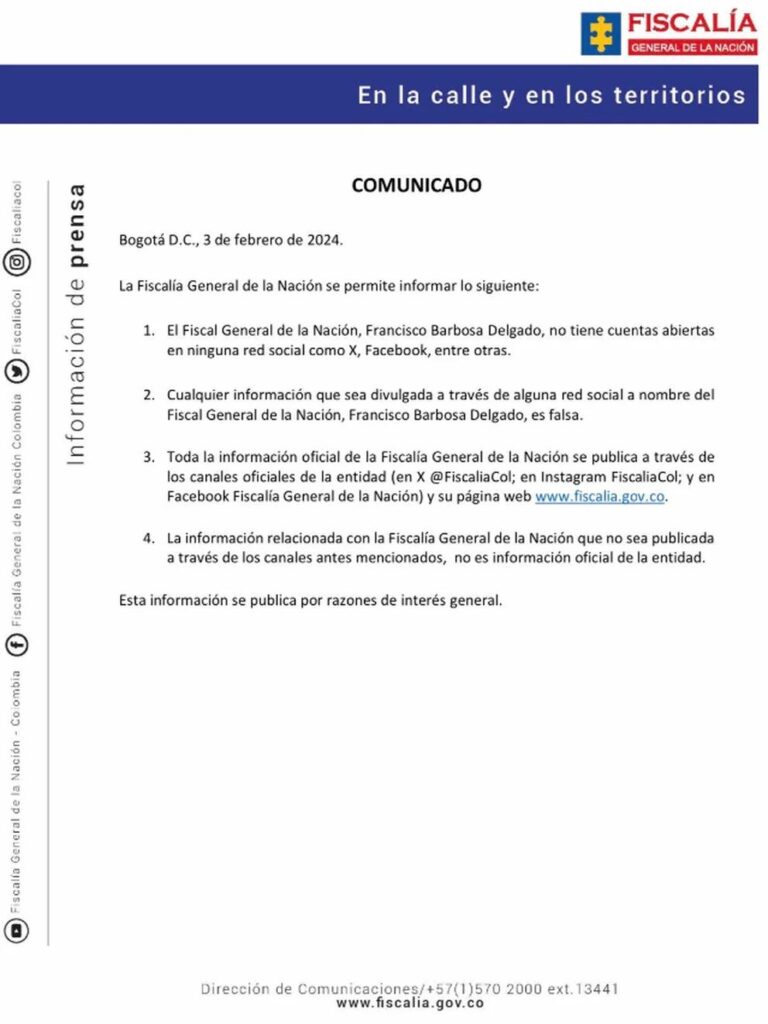In a recent Twitter dispute, Colombian President Gustavo Petro found himself at the center of controversy after engaging with a fake account purportedly belonging to the nation’s Attorney General, Francisco Barbosa. The incident unfolded following the news of charges filed against Ricardo Roa and Dagoberto Quiroga by the Attorney General’s Office, prompting a heated response from President Petro.
The president’s clash with the alleged fake account, which he mistook for Prosecutor Barbosa’s official profile, revealed a surprising oversight on Petro’s part. The account in question turned out to be a fan page supporting the prosecutor, clearly stating its nature as a fan page. Petro responded to the account, addressing what he perceived as an attack on progressivism and labor organizations linked to his recent political campaign financing.

In a statement, President Petro expressed his frustration, accusing Barbosa of attempting to undermine democratic processes within the prosecutor’s office. He vehemently defended the legality of campaign donations from workers’ organizations and dismissed the charges as an attempt to tarnish his progressive agenda.
Petro continued his tirade by pointing to alleged corruption under Barbosa’s leadership, referencing incidents involving drug traffickers and the Odebrecht scandal. He went on to accuse the Attorney General of seeking a coup under the guise of institutional actions, drawing parallels with similar events in Guatemala.
The Colombian president even called on citizens to form “popular forces” and organize peaceful mobilizations to defend the popular vote. He urged people to resist any attempt to undermine democracy and promised a firm response through democratic institutions, law, and justice.
In response, the Attorney General’s Office issued a statement clarifying that Francisco Barbosa Delgado has no active social media accounts, including on Twitter. The statement emphasized that any information attributed to the Attorney General on social media is false, urging the public to rely on official channels for accurate information.

As the controversy unfolds, questions arise about the implications of such online clashes between high-ranking officials and the potential impact on public trust in Colombia’s political institutions. The incident serves as a reminder of the challenges posed by the intersection of social media, politics, and the dissemination of accurate information.


